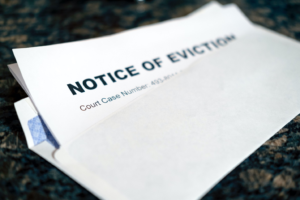
Court possession hearings represent a crucial phase within the UK’s legal system. These hearings are pivotal for landlords seeking to regain control of their properties and tenants who often find themselves entangled in intricate legal proceedings.
Landlord Assist is here to help you with our landlord legal services. We ensure that your court possession hearing goes as smoothly as possible. This article delves deep into the intricacies of court possession hearings in the UK, shedding light on their purpose, the legal framework, the steps involved, and the landlords’ and tenants’ rights and responsibilities.
Understanding Court Possession Hearings
At the heart of court possession hearings lies the resolution of disputes between landlords and tenants concerning the possession of a rented property. These hearings come into play when a landlord decides to regain control of their property for various reasons, such as rent arrears, breach of the tenancy agreement, or the expiration of a fixed-term tenancy. It is essential to distinguish between possession and eviction hearings; the former determines the legality of regaining possession, while the latter involves physically removing a tenant from the property.

The Legal Framework
The legal framework governing court possession hearings in the UK is primarily rooted in the Housing Act of 1988, subsequent amendments, and the Civil Procedure Rules. These statutes provide a comprehensive outline of the procedures that landlords and tenants must adhere to during possession hearings, ensuring the safeguarding of rights on both sides. This legal framework also incorporates provisions to prevent tenants from facing wrongful eviction and to uphold the principles of fairness and justice throughout the process.
Steps Involved in Court Possession Hearings
The progression through court possession hearings entails a series of meticulously orchestrated steps, each holding significance in resolving disputes between landlords and tenants. These steps encompass a comprehensive process that ensures the rights of both parties are safeguarded while also upholding the principles of fairness and justice.
Notice
Commencing court possession hearings often originates from landlords serving notices to their tenants. These notices explicitly outline the landlord’s intent to regain possession and underscore the specific grounds for this action. These grounds can span a broad spectrum, ranging from rent arrears to breaches of the tenancy agreement or even the natural culmination of a fixed-term tenancy.
Court Application
When tenants do not comply with the initial notice, landlords can progress to the next stage by submitting a court application for a possession order. This phase entails meticulous attention to detail, involving completing requisite forms and fulfilling corresponding fees.

Court Hearing
After lodging the application, the court takes the pivotal step of scheduling a hearing. This hearing acts as the platform for landlords and tenants to assert their respective cases, allowing them to present evidence arguments and, if necessary, call upon witnesses. This stage embodies the essence of due process, facilitating a comprehensive examination of the circumstances.
Possession Order
Upon thorough consideration of the presented cases, the court renders a verdict. A possession order is issued if the ruling aligns with the landlord’s position. This order delineates a specific timeline for the tenant to vacate the premises, marking a critical point in the proceedings.
Warrant of Possession
In cases where tenants remain on the premises beyond the stipulated deadline of the possession order, landlords can pursue a warrant of possession. This legal instrument equips bailiffs with the authority to undertake the physical eviction of the tenant should the need arise.

Rights and Responsibilities
Within court possession hearings, landlords and tenants each possess their own set of rights and responsibilities:
Landlords:
- The right to seek possession of their property based on valid reasons outlined in the tenancy agreement or legal statutes.
- The responsibility to meticulously adhere to the prescribed legal procedures, including the correct service of notices and compliance with court orders.
Tenants:
- The right to robustly defend their case, thereby presenting evidence and challenging the grounds for possession if necessary.
- The responsibility to fulfill their obligations as outlined in the tenancy agreement. This includes timely rent payments and adherence to property rules.
Ready to navigate the complexities of court possession hearings? Trust Landlord Assist, your specialist in landlord eviction lawyers. Whether it is resolving disputes or achieving successful tenant eviction, our experienced advisers, who are landlords and property experts, have a 15-year track record. Explore our services, including tenant eviction services UK, rent collection and debt recovery, and more.
Visit our website to learn more or get in touch with us.






